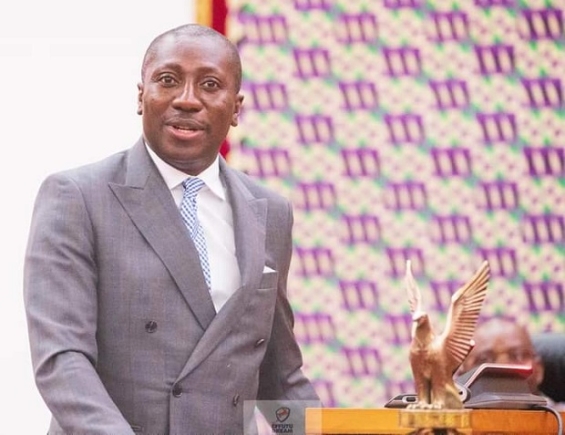
Majority leadership shakeup: What went wrong?
The recent reshuffle of the Majority Caucus leadership in Parliament has caused some apprehension within the ruling New Patriotic Party (NPP) and among segments of the public. The apprehension resulted from how the Majority Leader, Osei Kyei-Mensah-Bonsu was ‘removed’ from office.
Advertisement
The reshuffle of the Majority leadership was necessitated by the recent ministerial nominations made by President Nana Addo Dankwa Akufo-Addo where the First Deputy Majority Chief Whip, Lydia Seyram Alhassan, was nominated for ministerial appointment. Consequently, the National Executive Committee (NEC) of the New Patriotic Party (NPP) felt the need to consider a substantial change to the party’s leadership in Parliament and not just to fill Ms Alhassan’s position.
New Standing Orders
Traditionally, the party’s NEC makes such decisions and communicates its decision through the party’s General Secretary to the Speaker of Parliament. This corresponds with the party’s constitution and the old Parliamentary Standing Orders. However, with effect from this year (2024), a new Standing Order has been adopted that empowers the Majority and Minority Caucuses to make such decisions in consultation with their parties to strengthen Parliament and promote democracy. This was because the old arrangement was not democratic — it gave the parties’ leadership outside Parliament to impose leadership on their parliamentary caucuses.
Thus, consistent with the existing conventions, the NPP leadership outside Parliament carried out a reshuffle and gave the Majority Leader’s position to his deputy, Alexander Afenyo-Markin. This was done at a time when the former was outside the country. The media rumoured this and the NPP Majority Caucus in Parliament held a press conference on February 20, 2024, to dismiss the rumours. At the press conference, the First Deputy Speaker of Parliament, Joseph Osei-Owusu emphasised that the caucus had no plans to change their leadership – they had confidence in their leaders, therefore, the rumour should be disregarded.
Later, the party’s leadership outside Parliament and some members of the parliamentary caucus met at the Presidency and it was there that the Majority Leader ‘voluntarily’ resigned to pave the way for peace and unity within the party. This was because his removal was causing disquiet within the party. As he puts it, in my absence from the country, certain issues had been raised to which I have been connected. I do not want to be in the eye of the storm. Nothing should be done that would cause catastrophic consequences. That is why I am stressing peace and unity. It must be recalled that the minority leadership outside Parliament had made similar changes in the recent past to remove the Minority Leader that precipitated demonstrations in Tamale South, the then Minority Leader’s constituency. Going forward, political parties should follow the new Standing Order in selecting and altering their parliamentary caucuses to protect Ghana’s democracy.
Executive powers
Given that the reshuffle of the NPP’s parliamentary leadership was triggered by the First Deputy Majority Whip’s nomination for ministerial appointment, it reignites the debate about the extensive powers of the President vis-à-vis Parliament. The 1992 Constitution requires that the President appoints most of his ministers from Parliament. This makes Parliament subservient to the President and allows the President to ‘encroach’ on Parliament and ‘twist’ its hands to get what he wants. A President who is very calculative can cause much harm to Parliament. As Ghana is considering constitutional review, this must be addressed to protect Parliament’s independence. Scrapping the position of the Minister of Parliamentary Affairs would also safeguard Parliament’s independence because that office extends the President’s hands into Parliament and asserts the President’s authority over Parliament.
Mr Kyei-Mensah-Bonsu’s removal also shows how we treat people who have distinguished themselves in public service. The way he was ‘dispensed with’ is very questionable and is demotivating to people who aspire to be like him. This could have been handled better if the NPP were to take a cue from our traditional political arrangement where incoming leaders ‘sit on the laps’ of outgoing leaders to gain experience and receive their blessings. This would have spared us the tension and discomfort that Mr Kyei-Mensah-Bonsu’s removal has caused. The party could have also engaged in extensive consultations before the reshuffle. The new Majority Leader, Mr Afenyo-Markin and the immediate past Majority Leader, Mr Kyei-Mensah-Bonsu are great men, it is just unfortunate how the transition was executed.
Representation
Mr Kyei-Mensah-Bonsu’s removal and the issues that followed also raise the issue of representation and accountability. The question is who are Members of Parliament (MPs) accountable to? Are they accountable to their political parties on whose ticket they contest elections, to their constituents who voted for them or both? If MPs want to protect their career, they should be more accountable to their constituents. This is because we have MPs who lost their party primaries and gone ahead to win the election as independents. For this reason, MPs should be accountable to their parties to promote party discipline but their ultimate loyalty should be to the people they represent.
The writer is a Political Scientist




